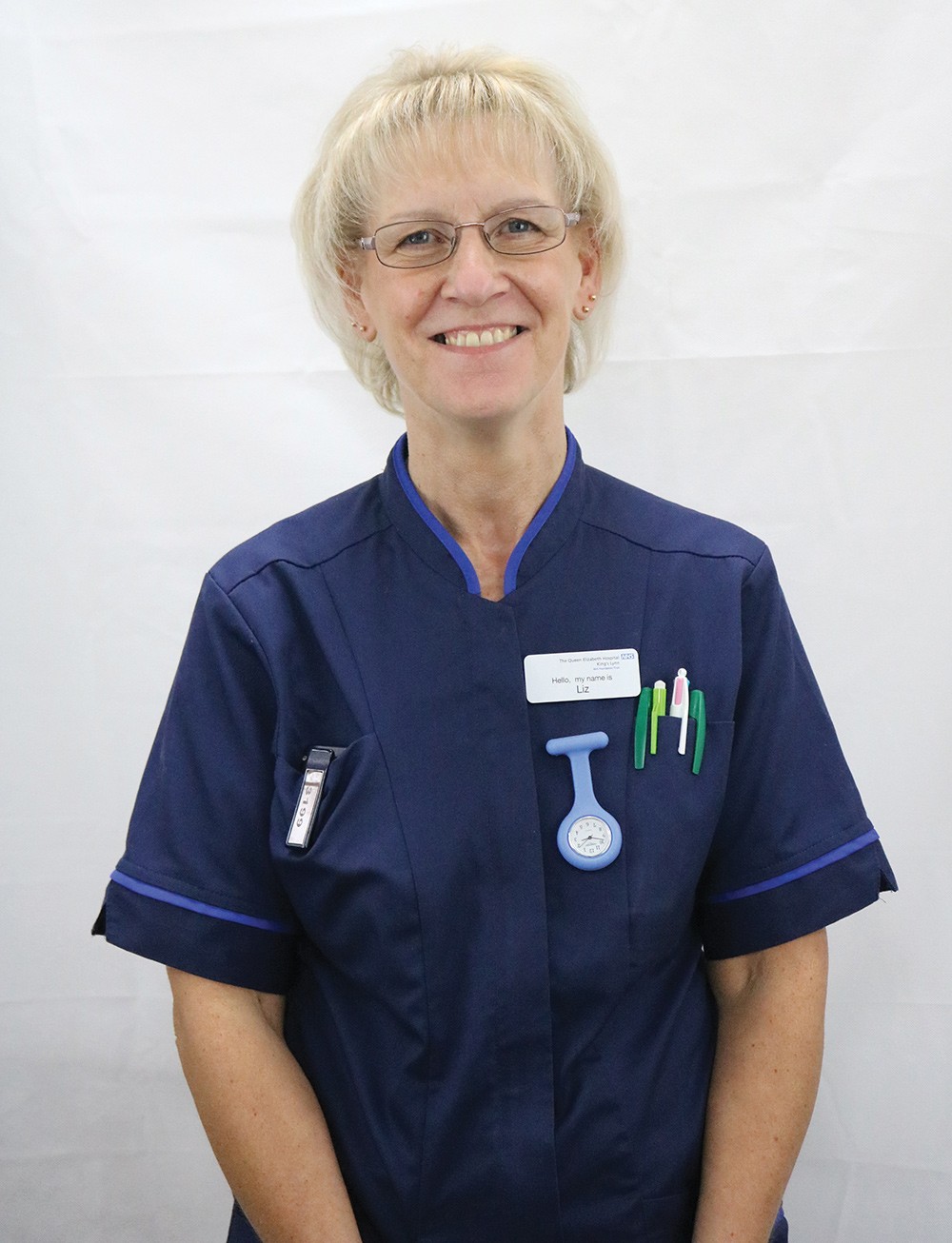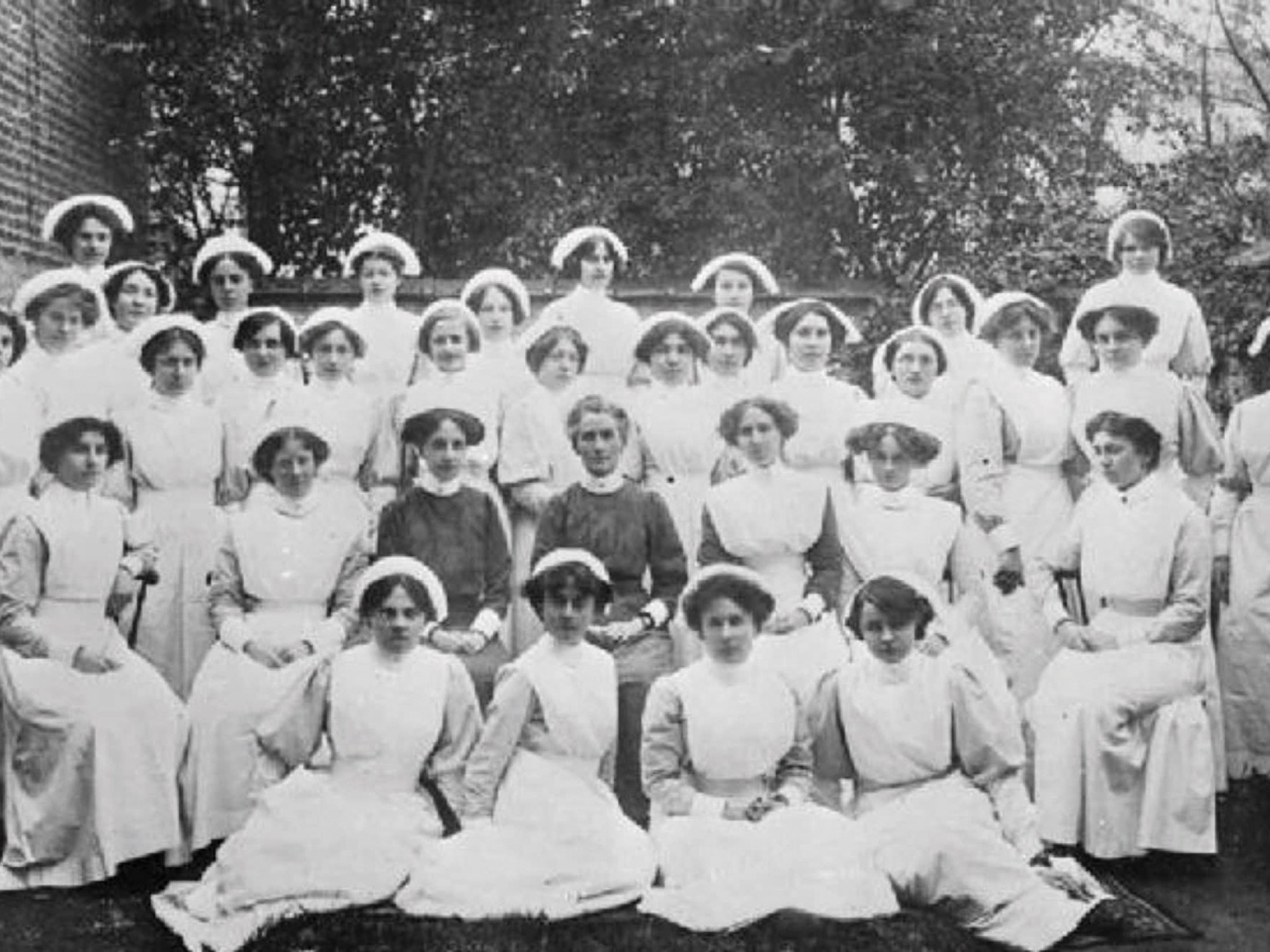
It’s time to celebrate caring and dedication
Courageous, compassionate and committed, nurses play a valuable role in our ever-changing world - from the inspiring practitioners who’ve shaped our past to the aspiring individuals safeguarding our future
On May 12th we’ll be marking International Nurses Day, a global celebration acknowledging the importance of nurses and their incredible contribution to the healthcare system. Falling on Florence Nightingale’s birthday, it was founded by the International Council of Nurses in 1965 to emphasise and appreciate the hard work and devotion of nurses around the world.
One of the most influential figures in the history of nursing is the remarkable Edith Cavell, who became a national symbol of determination and courage during the First World War. Born in 1865 in the Norfolk village of Swardeston, where her father served as vicar for 45 years, she was imbued with a duty to help the less fortunate from an early age.
Cavell worked as a governess for several years before training as a nurse at the London Hospital and applying herself wherever needed in the country. In 1897 she received a medal for assisting the suppression of a typhoid outbreak in Maidstone, and in 1907 she was recruited by a leading surgeon to be the matron of a newly-established nursing school in Brussels. Within four years Edith Cavell was a training nurse for three hospitals, 24 schools and 13 kindergartens across Belgium - and the demand for nurses educated by her was huge.
Cavell was visiting her mother in Norfolk when World War One began in 1914, and feeling she’d be needed there more than ever courageously rushed back to Brussels. Her school and clinic were soon taken over by the Red Cross and she continued to guide her nurses, telling them “any wounded soldier must be treated, friend or foe. Each man is a father, husband, or son.”
After the Germans occupied Brussels in November 1914, Cavell’s innate kindness and compassion led to her involvement in a brave but dangerous activity. She began sheltering British, Belgian, and French soldiers, nursing them to health, providing them with false papers, and helping them make their way back to neutral Holland.
These selfless actions placed Cavell in violation of German military law, and in August 1915 she was arrested for treason, imprisoned for 10 weeks, and sentenced to death.
Sadly, the British government could do nothing to help her and Edith Cavell was executed by firing squad on 12th October 1915. Her final words are said to have been “tell my loved ones later on that my soul, as I believe, is safe and that I am glad to die for my country.”
Edith Cavell will forever be admired for her bravery and dedication, and she has inspired nurses all over the world – particularly those in her beloved home county.
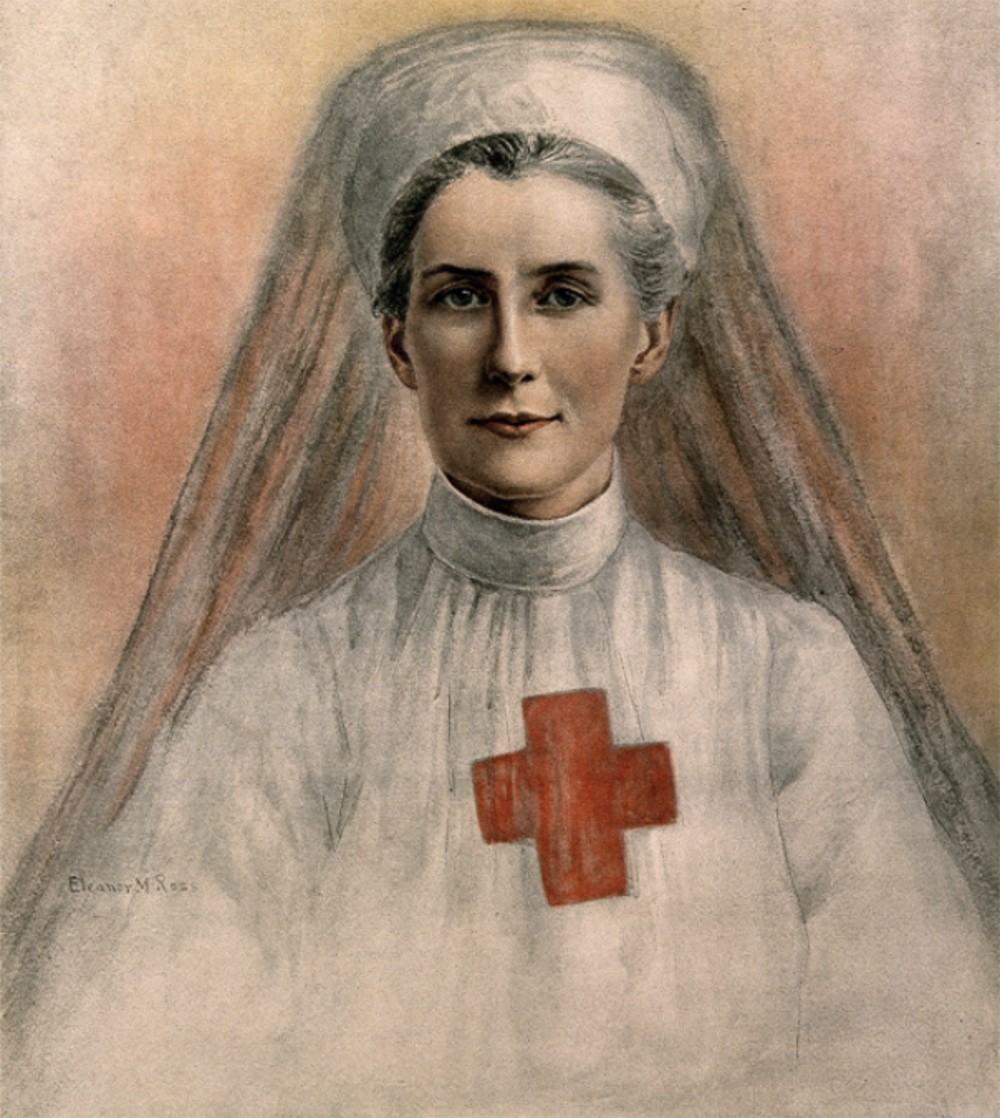
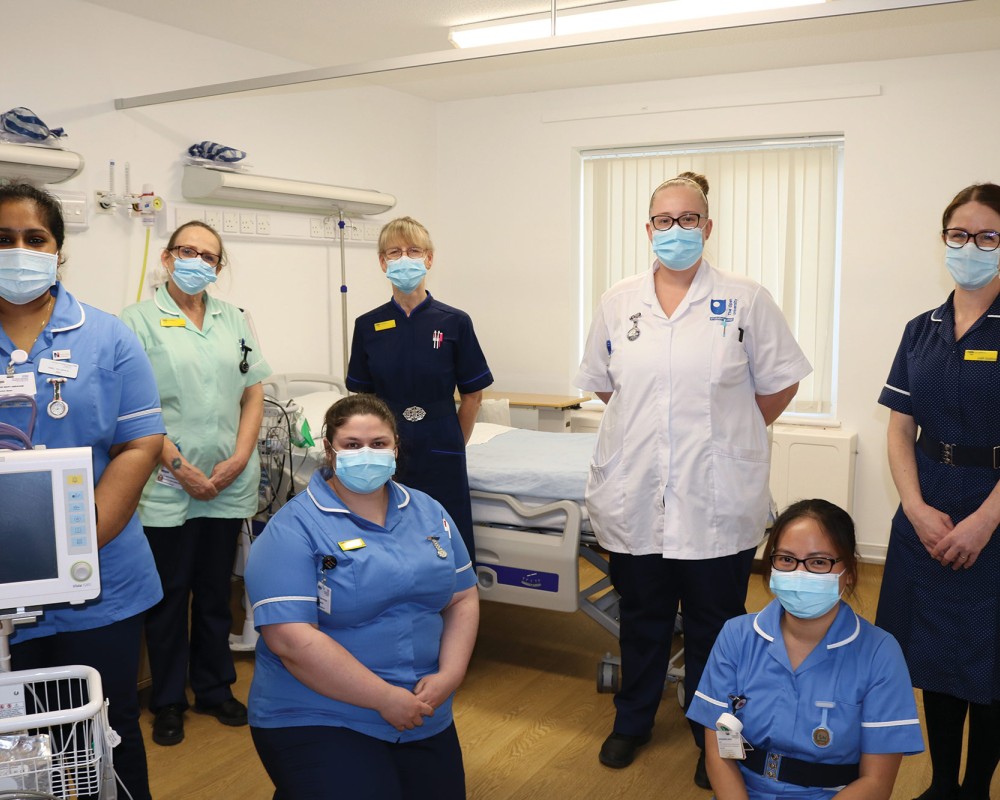
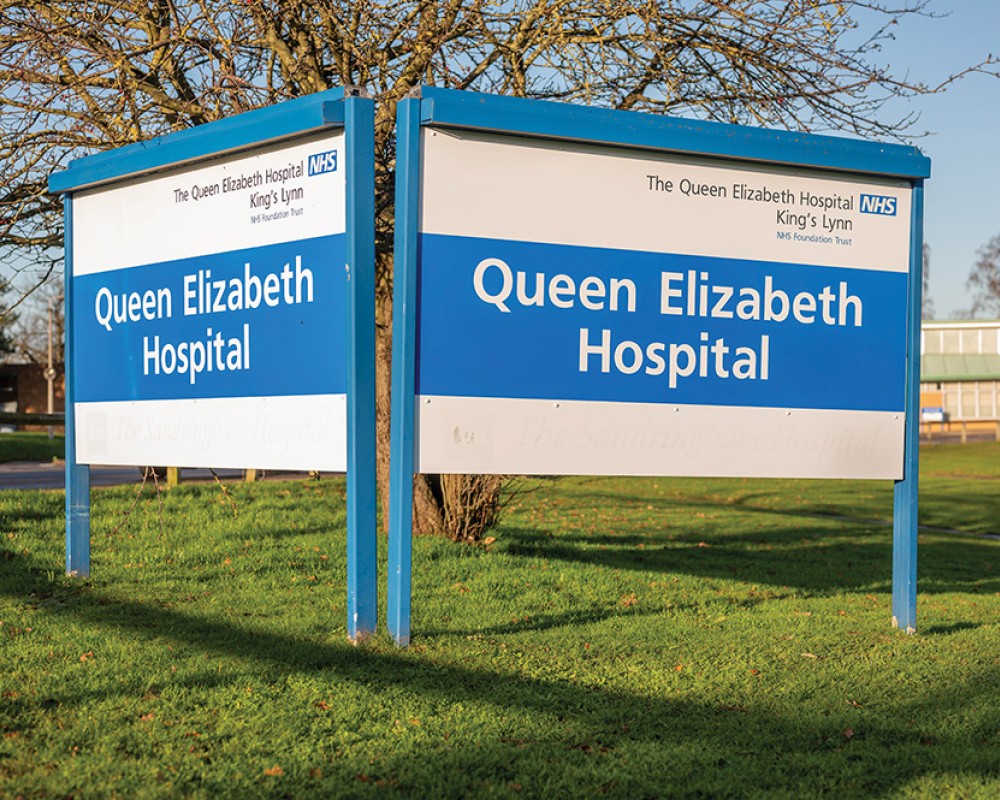
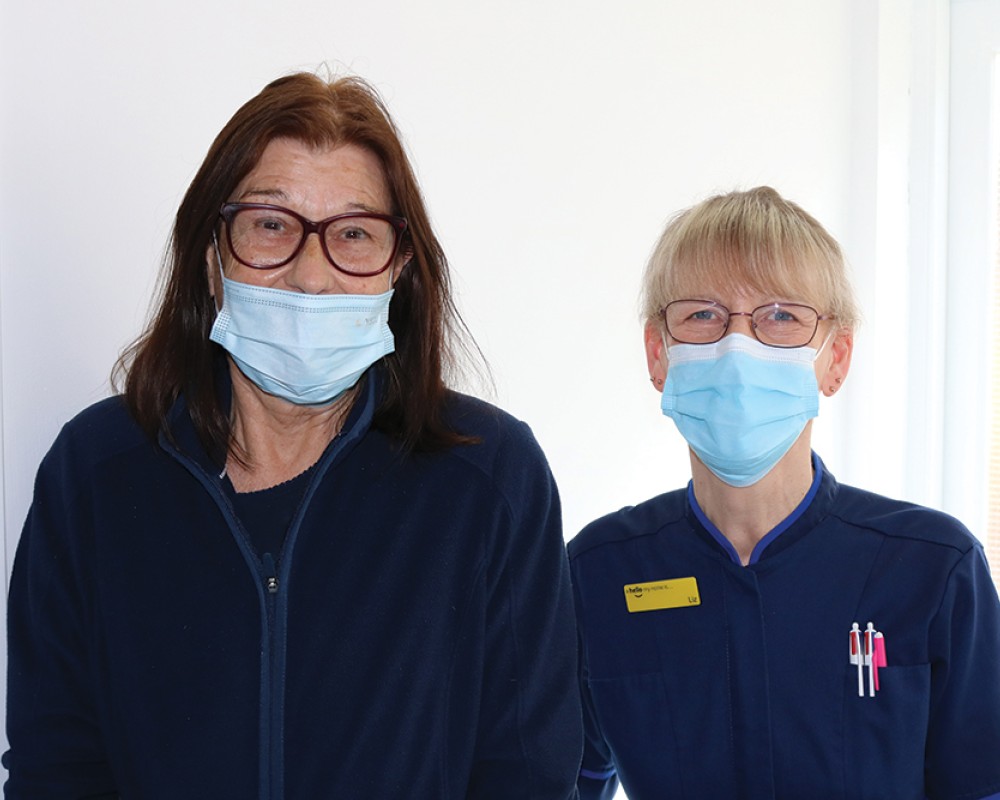
Above: Dedicated Norfolk nurse Liz Barker and her team at the Queen Elizabeth Hospital in King’s Lynn, and Liz (right) with one of her patients, Wendy Barrow (left).
In Norfolk we are blessed with a fantastic community spirit, and the wonderful team at the Queen Elizabeth Hospital in King’s Lynn are always going above and beyond to provide an outstanding standard of care.
“At the QEH we have an amazing team approach,” says Liz Barker, the hospital’s Head of Nursing for the Division of Surgery. “We’re always there to support others with kindness and enthusiasm, and any challenges we face we tackle together.”
Now 37 years into her nursing career, Liz has always been passionate about making a difference to people’s lives.
“Right from an early age I just loved caring for things,” she says. “I grew up on a farm in Stowbridge and enjoyed tending to the animals – although I knew I really wanted to care for people. When my friends joined the girl guides, I enrolled in the Red Cross and as soon as I’d finished my education I began a career in nursing. I’ve loved it ever since and I’ve certainly never looked back.”
I grew up on a farm in Stowbridge and enjoyed tending to the animals – although I knew I really wanted to care for people...Liz plays a vital role at the QEH, supporting and assisting on the wards, offering advice to other nurses, and ensuring patients and their relatives receive the quality of care they deserve.
“One of the most rewarding parts of the job is just listening to patients and holding their hand,” she says. “I love seeing that little smile form on their face, knowing the small amount of time I’ve given them has made such a big difference and brought them comfort.”
Throughout the challenges of recent years, nurses and other healthcare professionals have worked harder than ever to keep us safe and well – which is why it’s so important to celebrate everything they do.
“It’s lovely that we have International Nurses Day,” says Liz. “We’ve really built on the incredible work of figures from the past like Florence Nightingale and Edith Cavell, and nursing has become so advanced as a career. I think that if they could visit us today and see the progress we’ve made, they would be very proud indeed.”
